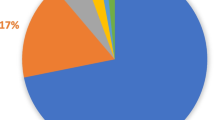Abstract
In India, Rights of persons with disabilities (RPWD) Act 2016 recognizes 21 disabilities including 12 disabilities which were not present in Person with disabilities Act 1995. Disability certificate (DC) is necessary to avail benefits under the RPWD Act 2016. To study socio-demographic and clinical profile of patients who were issued DC as per RPWD Act 2016 for psychiatric, neurological, and neurosurgical disorders. The study was carried out at National Institute for Mental Health and Neurological Sciences (NIMHANS), Bengaluru. Socio-demographic and clinical details of patients who were issued DC for 2107 and 2018 were retrieved from hospital register, case files and e-hospital portal. A total of 2448 DC were issued in 2017 and 2018. Among DC issued, records of 2376 patients could be retrieved for the study. 95% of certificates were issued for patients from same state where our centre is located. Two thirds of patients were male. Most DC were issued for intellectual disability (51.9%) and mental illness (39%), chronic neurological conditions (5.1%), autism (1.1%), and muscular dystrophy (0.9%). Stroke (1.7%) was most common chronic neurological condition to be certified. Though the institute caters to more than 4 lakhs patients annually, only around 1200 DC are issued per year. There is considerable variation among units/consultant in same department who initiate disability certification. Patients, caregivers, and health professionals need to be sensitized about the disability certification process and available welfare benefits.
Similar content being viewed by others
References
Annual report 2017–18. NIMHANS, Bengaluru. http://nimhans.ac.in/wp-content/uploads/2019/10/NIMHANS-Annual-Report-2017-18.pdf (2018). Accessed 19 June 2020.
Balhara YPS, Gauba D, Deshpande SN. Profile difference between male and female psychiatric patients seeking certificate of disability. Oman Med J. 2011;26(6):410–5.
Balhara YPS, Verma R, Deshpande SN. A study of profile of disability certificate seeking patients with schizophrenia over a 5 year period. Indian J Psychol Med. 2013;35(2):127–34.
Chand PK, Murthy P, Arunachalam V, Kumar CN, Isaac MK. Service utilization in a tertiary psychiatric care setting in South India. Asian J Psychiatry. 2010;3:222–6.
Chaudhary PK, Deka K, Chetia D. Disability associated with mental disorders. Indian J Psychiatry. 2006;48:95–101.
Guidelines for evaluation and assessment of Autism and procedure for certification. Department of Empowerment of Persons with Disabilities Ministry of Social Justice and empowerment, Government of India. https://www.thenationaltrust.gov.in/upload/uploadfiles/files/25%20April%202016%20-%20Autism%20Notification.pdf (2016). Accessed 19 June 2020.
Guidelines for the purpose of assessing the extent of specified disability in a person included under the Rights of Persons with Disabilities Act. Department of Empowerment of Persons with Disabilities Ministry of Social Justice and empowerment, Government of India. http://scpdodisha.nic.in/sites/default/files/GOI%20guidelines%20for%20PwD-63-117%20english.pdf (2016). Accessed 19 June 2020.
James JW, Basavarajappa C, Sivakumar T, Banerjee R, Thirthalli J. Swavlamban Health Insurance scheme for persons with disabilities: an experiential account. Indian J Psychiatry. 2019;61:369–75.
Kashyap K, Thunga R, Rao AK, Balamurali NP. Trends of utilization of government disability benefits among chronic mentally ill. Indian J Psychiatry. 2012;54(1):54–8.
Kumar V, Singh NK. Awareness of disability certificate uses among the caregivers of persons with mental illness. East J Psychiatry. 2018;21:1–7.
Masroor J, Singh AR, Kishore MT, Amble T. “Rights of Persons with Disabilities Act 2016”: appraisal and critical review. Indian J Clin Psychol. 2019;46(1):5–13.
Menon DK, Kishore MT, Sivakumar T, Maulik PK, Kumar D, Lakhan R, Banerjee R. The National Trust: a viable model of care for adults with intellectual disabilities in India. J Intellect Disabil. 2017;21(3):259–69.
Mishra NN, Parker LS, Nimgaonkar VL, Deshpande SN. Disability certificates in India: a challenge to health privacy. Indian J Med Ethics. 2012;9(1):43–5.
Murray CJL, Lopez AD. Global mortality, disability, and the contribution of risk factors: Global Burden of Disease Study. Lancet. 1997;349:1436–42.
Rights of Persons with Disabilities Act: Department of Empowerment of Persons with Disabilities Ministry of Social Justice and empowerment, Government of India. https://www.indiacode.nic.in/handle/123456789/2155?view_type=browse&sam_handle=123456789/1362 (2016). Accessed 19 June 2020.
Schuntermann MF. The International Classification of Impairments, Disabilities and Handicaps (ICIDH)—results and problems. Int J Rehabil Res. 1996;19(1):1–11. https://doi.org/10.1097/00004356-199603000-00001.
Sivakumar T, James JW, Basavarajappa C. Health insurance schemes for children and adolescents with psychiatric disability. J Indian Assoc Child Adolesc Ment Health. 2017;13(1):1–9.
The Rights of Persons with Disabilities Rules: Ministry of Social Justice and empowerment. Government of India. http://www.egazette.nic.in/WriteReadData/2017/174740.pdf (2017). Accessed 19 June 2020.
Thirthalli J, Basavarajappa C. Distinctiveness of disability due to psychiatric conditions. J Psychosoc Rehabil Ment Health. 2014;1:85–6.
Viola S, Moncrieff J. Claims for sickness and disability benefits owing to mental disorders in the UK: trends from 1995 to 2014. BJPsych Open. 2016;2:18–24.
World Health Organization. Towards a common language for functioning, disability and health: ICF. Int Classif. 2002;1149:1–22.
World Health Organization. World report on disability (2011).
Yadav A, Rastogi R, Udey B. Mental disability: a retrospective study of socio-clinical profile of patients seeking disability certificate at a tertiary care centre in Delhi. Epidemiol Int. 2017;2(1):19–25.
Acknowledgements
The authors acknowledge the institute and hospital administration of NIMHANS for support. The authors thank Dr Jagadisha Thirthalli, Professor of Psychiatry and Dr Krishna Prasad M, Additional Professor of Psychiatry for offering valuable inputs to improve the manuscript.
Author information
Authors and Affiliations
Corresponding author
Additional information
Publisher's Note
Springer Nature remains neutral with regard to jurisdictional claims in published maps and institutional affiliations.
Rights and permissions
About this article
Cite this article
Jadhav, P., Sivakumar, T. & Gupta, A. Sociodemographic and Clinical Profile of Patients Receiving Disability Certificates as per Rights of Persons with Disabilities Act 2016 for Psychiatric, Neurological, and Neurosurgical Disorders at Tertiary Care Centre. J. Psychosoc. Rehabil. Ment. Health 8, 29–34 (2021). https://doi.org/10.1007/s40737-020-00196-3
Received:
Accepted:
Published:
Issue Date:
DOI: https://doi.org/10.1007/s40737-020-00196-3




